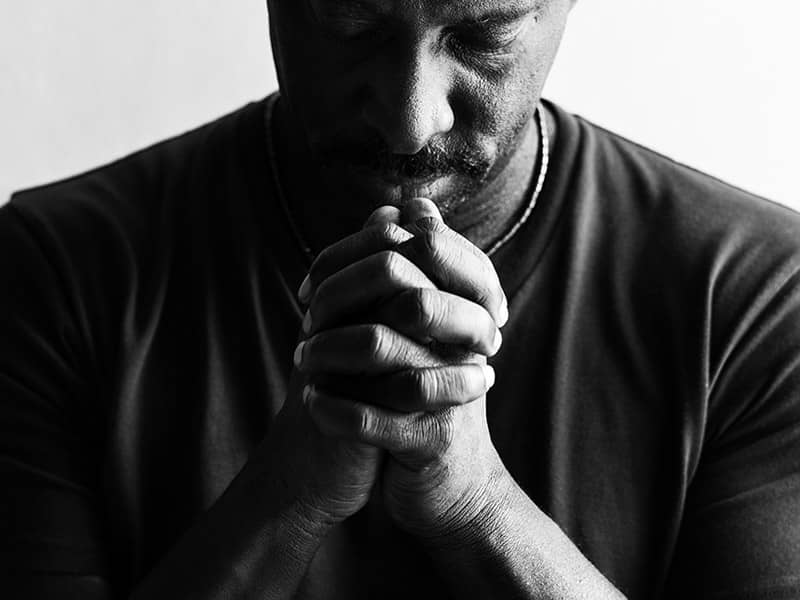
Although scripture describes God as omnipotent and all-powerful—capable of anything—it can still be difficult to believe that prayer can result in physical healing. It’s much easier to believe that God can change our psychology, but for Him to set a broken arm or cure diabetes? That takes a different level of faith. Rest assured, though, that scripture gives ample promise that God does miraculously heal us.
We just have to know how to ask.
A more difficult aspect of this truth, however, is that sometimes our prayers for healing go unanswered, no matter how fervently and faithfully we pray. But when we come to understand why God heals, as well as why He doesn’t, we discover that even our unanswered prayers are for the best. In this knowledge we can find peace, even in the direst of circumstances.
No matter what, though, God wants to take care of His children—that includes physically healing them. Let’s take a journey into scripture so that you can learn how to pray for His miraculous healing, why God heals us, and how to handle it when He doesn’t.
Why God Heals
When Christ sent out the disciples, they went about “teaching in their synagogues and proclaiming the gospel of the kingdom and healing every disease and affliction among the people,” according to Matthew 4:23. Jesus “called the twelve together and gave them power and authority over all demons and to cure diseases, and He sent them out to proclaim the kingdom of God and to heal.”
Healing is a testament to God’s character and power. To heal someone is an inherently loving act, and to do so miraculously shows great power, both of which are aspects of God.
Healing, then, is a way for God to reveal Himself to humankind. He does not merely heal for our convenience—for that, He has already given us the plants and the elements from which to make medicines.
God loves us, and wants our best, and He is willing to miraculously heal us when the act will bring about a greater good by showing the world who He is.
Pray the Right Way
In Luke 8: 43-46, we find a woman who touches Jesus’ clothing as he makes his way through a large group of people, and is healed. But why her? Out of all the people in that crowd, why was she, alone, healed?
Two things set her apart. The first is that she believed Christ could heal her. The second is that she not only desired healing, but acted on that desire by reaching out.
Just as this woman actively reached out in order to receiving physical healing, we must actively reach out to God through prayer. The power is there, waiting.
So, if you have the desire for healing, and you believe that God can heal you, what is the best way to pray?
Jesus gives us the perfect example in Matthew 6:9, when He recites the Lord’s Prayer. Let’s take a look at this prayer.
“Our Father in heaven, hallowed be your name, your kingdom come, your will be done, on earth as it is in heaven. Give us today our daily bread. And forgive us our debts, as we also have forgiven our debtors. And lead us not into temptation, but deliver us from the evil one.”
Jesus didn’t give us this prayer so that we could recite it word-for-word. Rather, this is a guide on how to pray for the things we need.
It begins with praise to God, as well as the acknowledgement that we want His will to be done, not our own—a great way to begin any prayer, since God knows infinitely more about what we need than we, ourselves, do.
For healing, the most important part of this prayer is the line, “our daily bread,” which translates to asking God for the things we need. This doesn’t mean fame or riches or a superhumanly beautiful body. This part of the Lord’s Prayer reminds us to examine our motivations when we pray so that we’re not asking for a miracle out of selfishness or greed.
When we pray for miraculous healing, we need to take on a certain mindset: we must want God’s will to be done, and not ours, and we must ask in a way that is free from greed and selfishness. This is the kind of praying that God rewards, and that can transform the way we think for the better.
When God Doesn’t Heal
Even in the Bible, not everyone who desired miraculous healing received it, and we must each be prepared for this eventuality, as well.
God does want us to be happy, but because He can see all ends, He knows that not performing miracles can be just as important as performing them for us. After all, sometimes the greatest testimonies come out of our weakness.
Yet, this answer doesn’t quite satisfy in a world where thousands of innocents suffer and die each day. Why doesn’t God heal starving children? Why doesn’t he heal the elderly? It’s difficult to simply wave all this away with a dismissive “God uses suffering to teach us.”
The worst kind of suffering is that which seems absolutely meaningless. But we have to remember one thing: we live in a fallen world. The very first humans God created decided that, rather than staying beneath God’s 24-hour protection, they wanted to self-rule. So God granted that request, and unfortunate as it is, the hazardous, random world we live in today is a result of that.
When God doesn’t heal you, or someone you love, it isn’t necessarily because you aren’t faithful enough. It’s certainly not because He doesn’t care about or love you. It’s because He sees the big picture, acting and not acting in ways that ensure our eventual, global good, despite the fact that we live in a harsh world.
Never stop praying for healing, but don’t lose faith in God’s sovereignty if that healing doesn’t come in the form you’d like.
A Message to the World
God changes us when we pray—the very act of admitting that His will is best, and of asking for it to be done helps us cultivate a positive, transformative mindset. If you desire healing, don’t hesitate to ask God for what you need, using the Lord’s Prayer to guide your thoughts and words.
God will answer, and even if that answer isn’t quite what you imagined, you’ll be the better for it. God loves you, and has wonderful things in store for you in this life, and the next.

